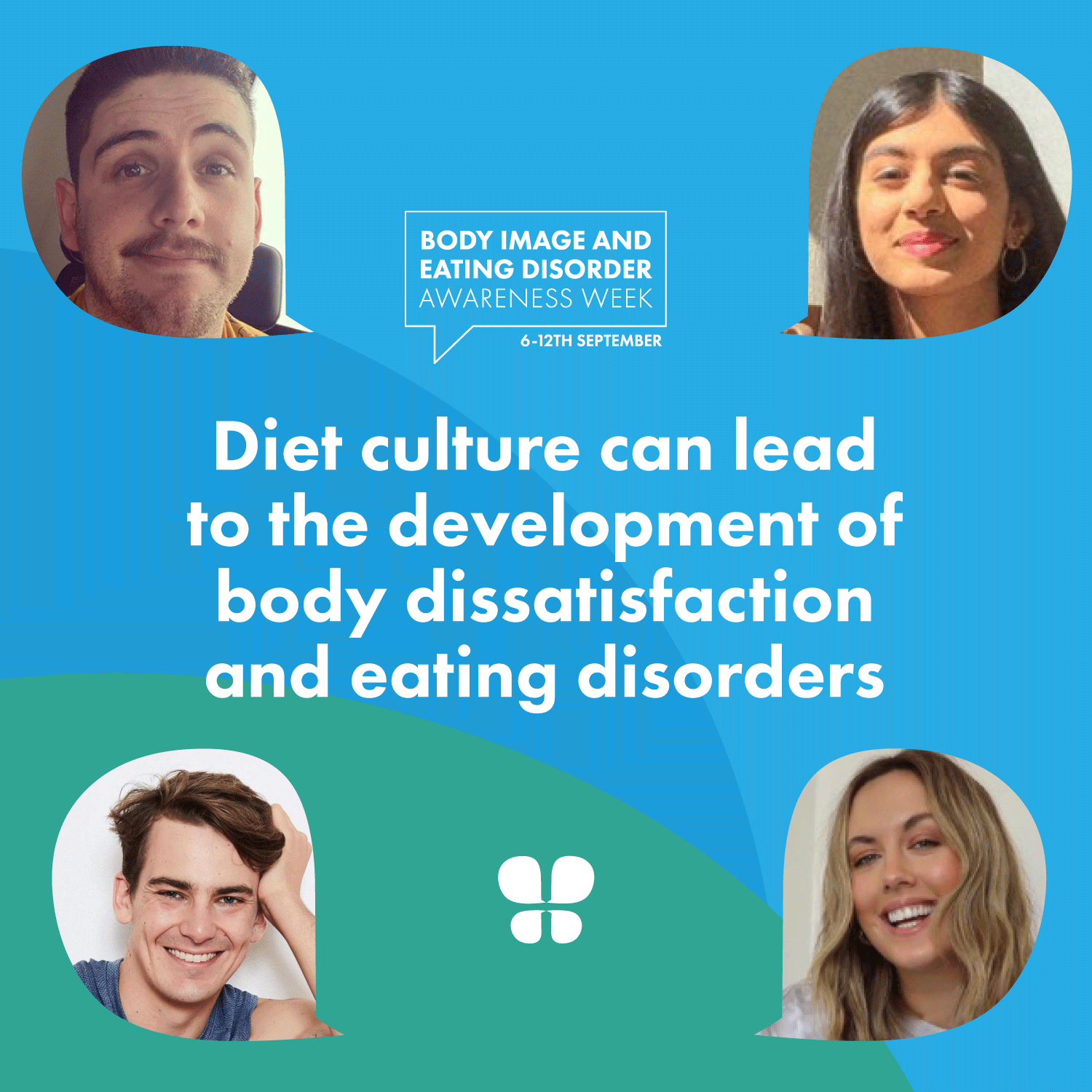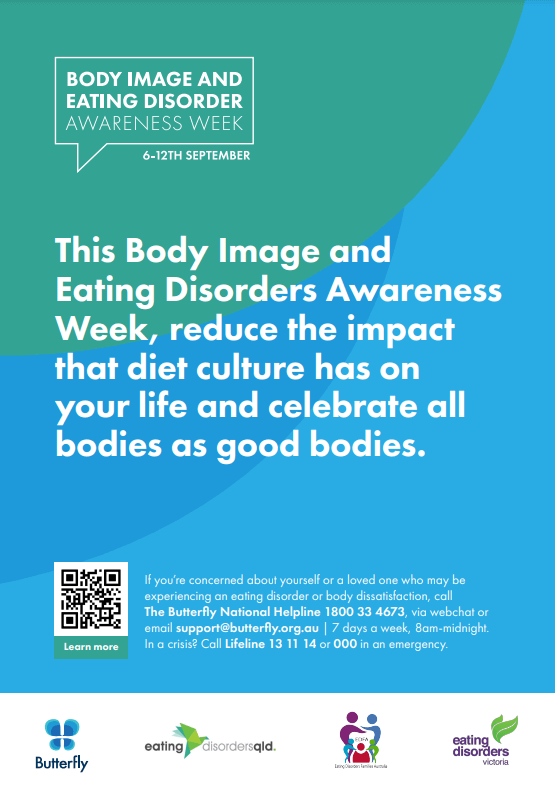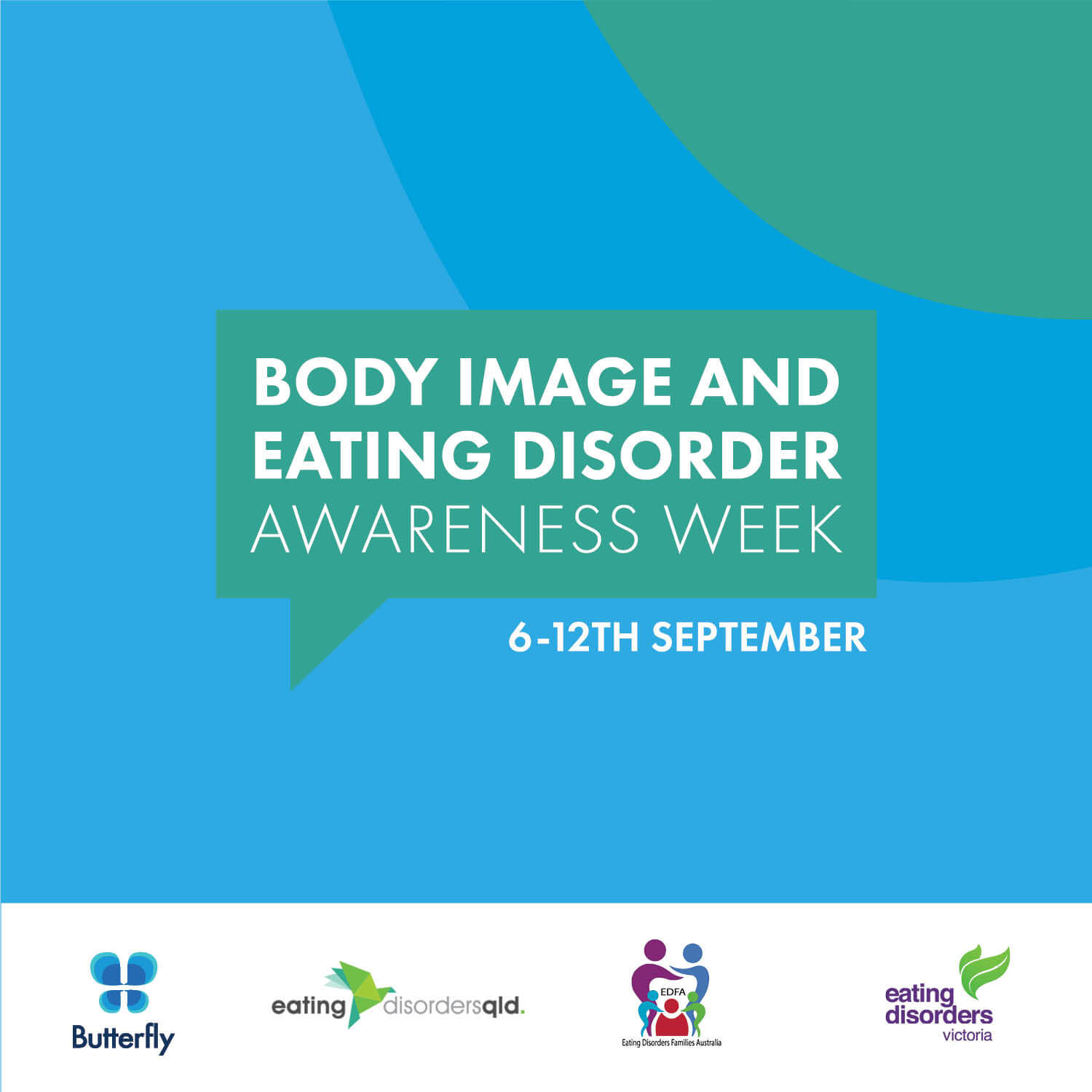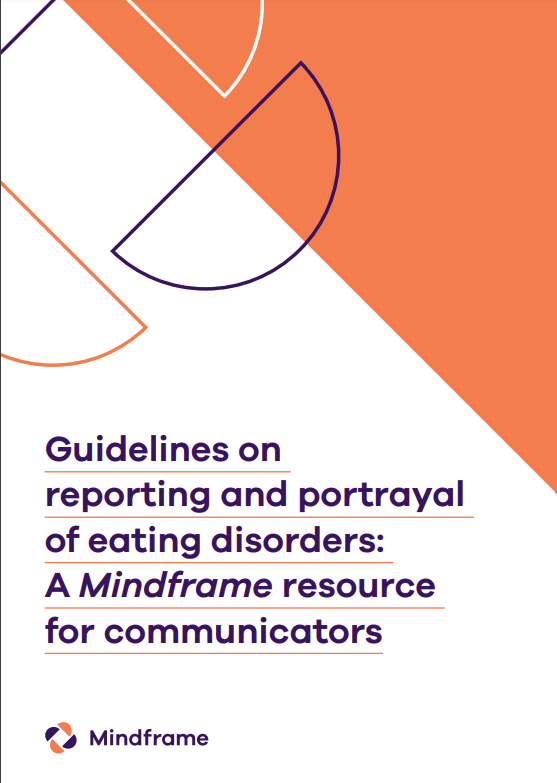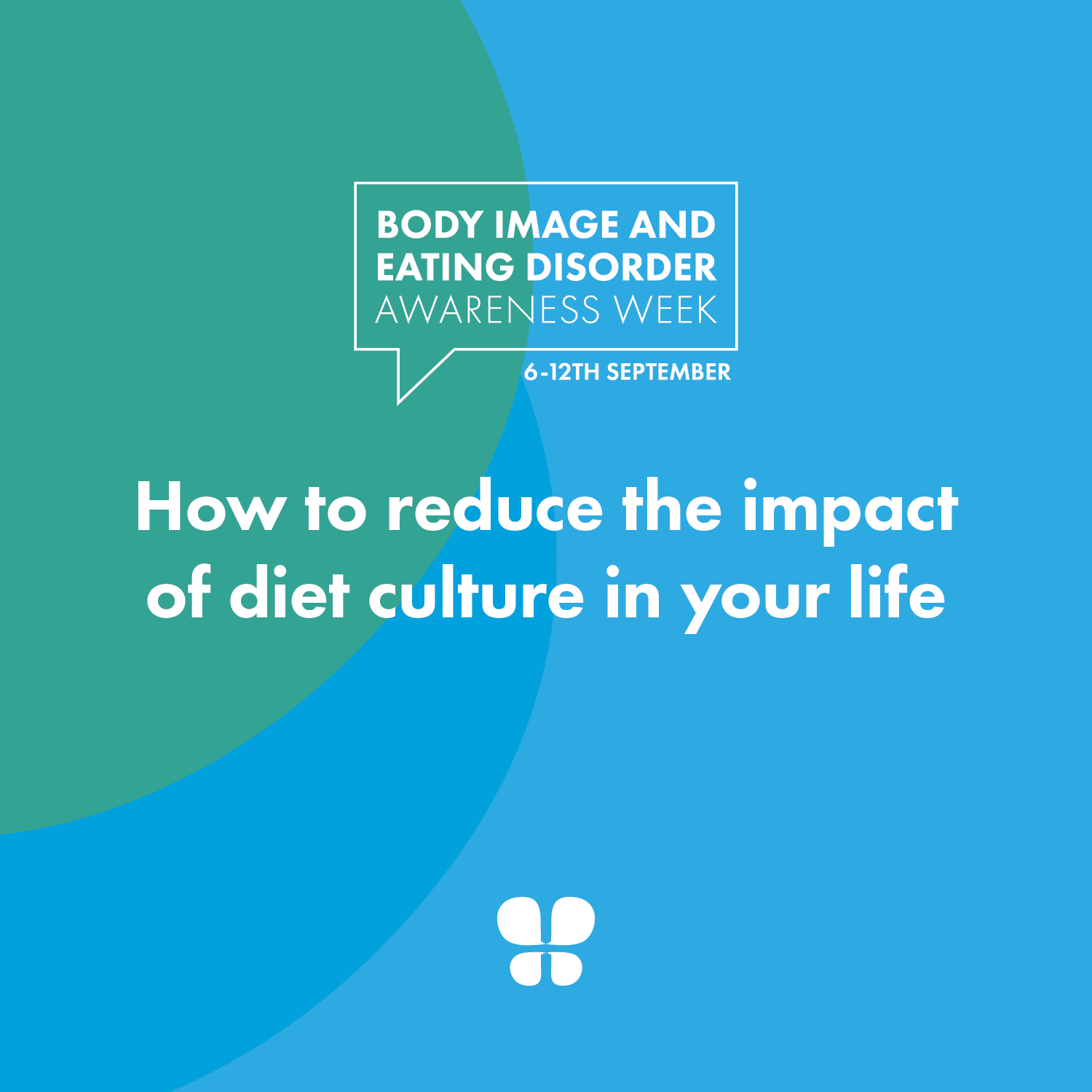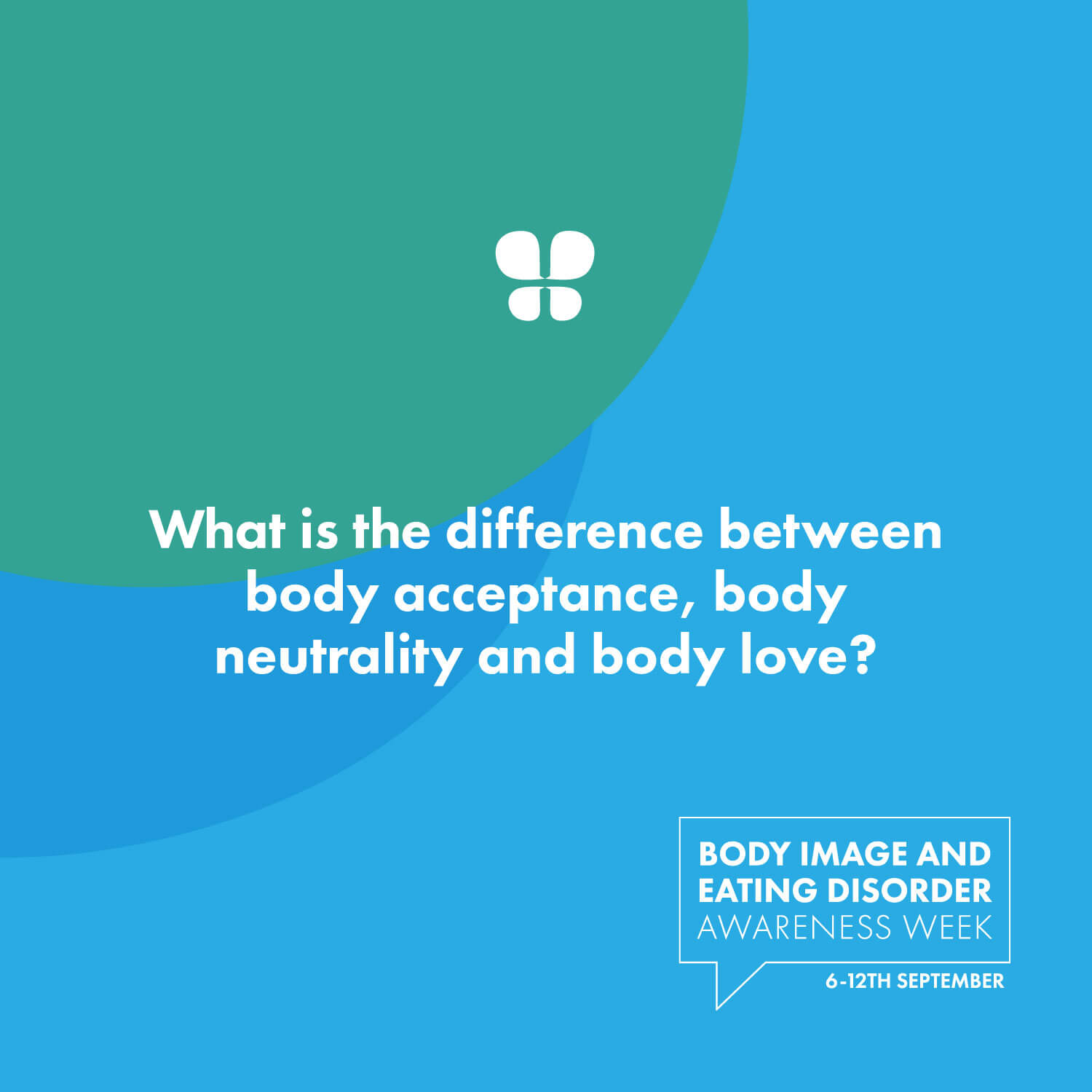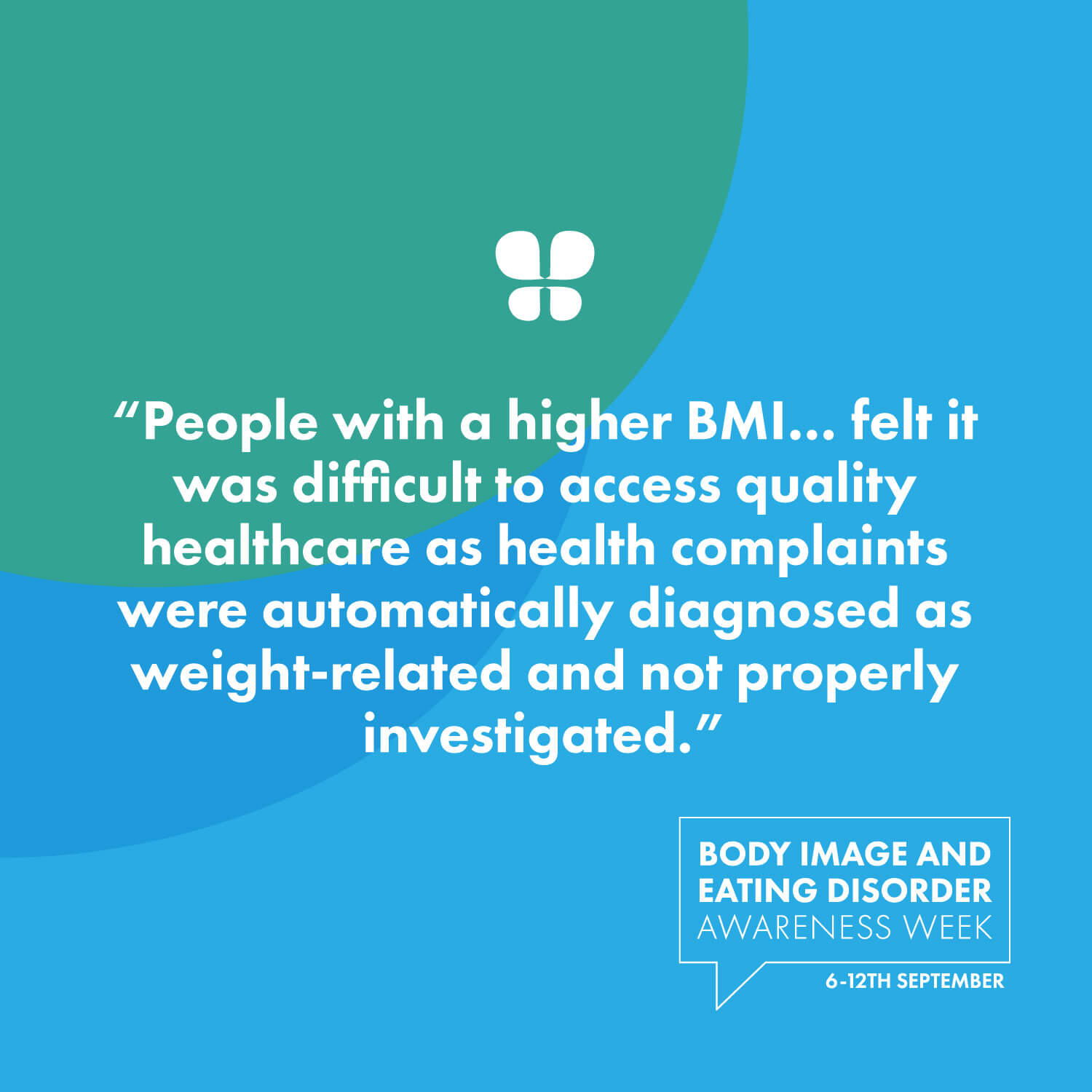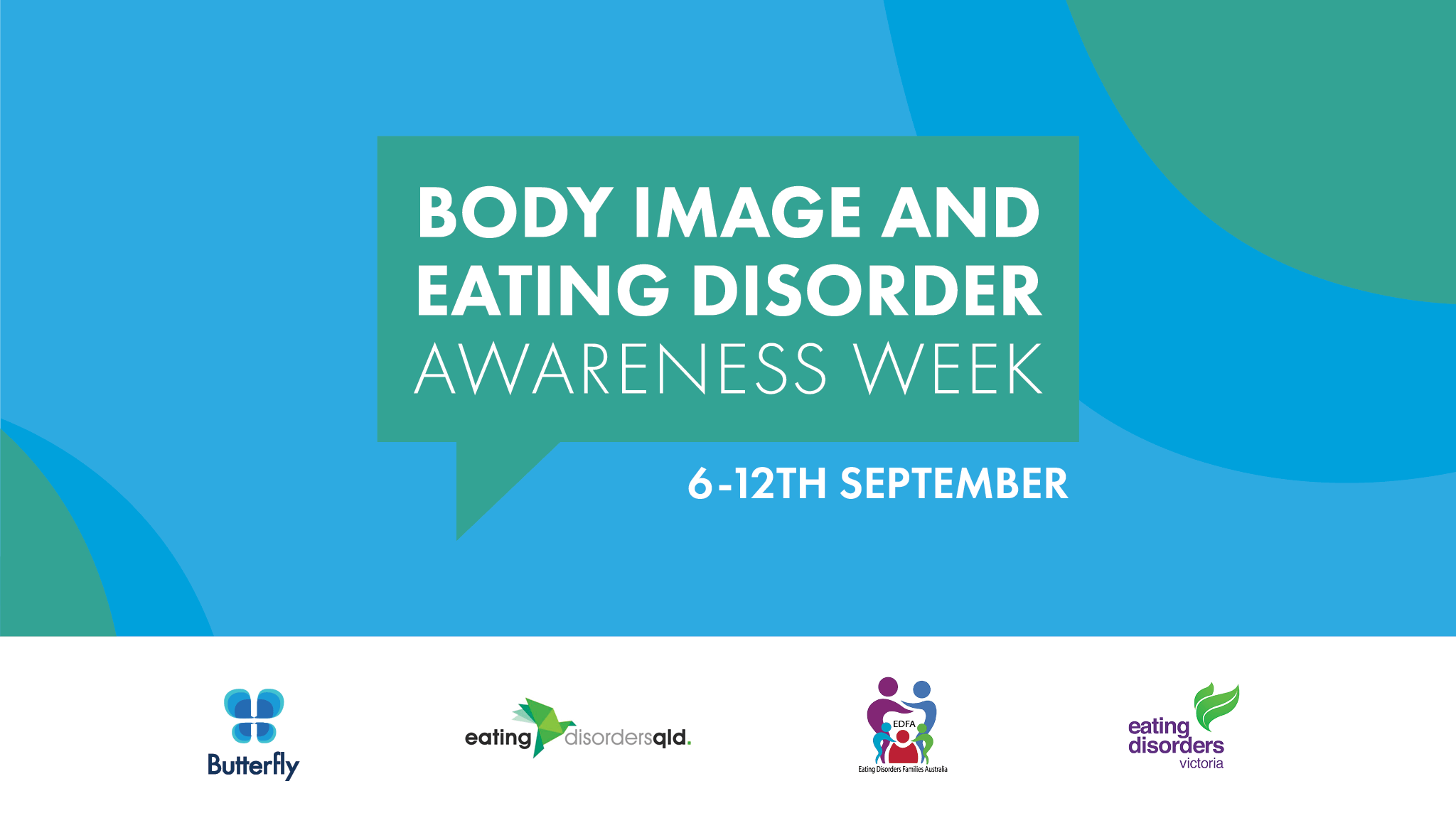
BIEDAW will be back for 2022! Watch this space for updates on the 2022 theme and how you can get involved.
Questions? Contact comms@butterfly.org.au
To celebrate all bodies, we must be aware of the impact of diet culture on our body image and our lives.
Body Image and Eating Disorders Awareness Week (BIEDAW) is a national week to raise awareness of body image concerns and eating disorders, celebrated annually in the first full week of September.
Eating disorders can affect anyone at any time, and one of the largest, modifiable risk factors in the development of an eating disorder is dieting. Additionally, months of lockdowns, isolation and changes in routine have been hard for people living with eating disorders and body dissatisfaction. This has only been compounded by media messaging and living in a diet culture that says we should feel guilty about how our bodies have changed during this time.
As such, in 2021 we will be joining some members of the Eating Disorder Alliance Australia colleagues to raise awareness of the impact of diet culture on our lives and body image, so we can continue to celebrate all bodies.
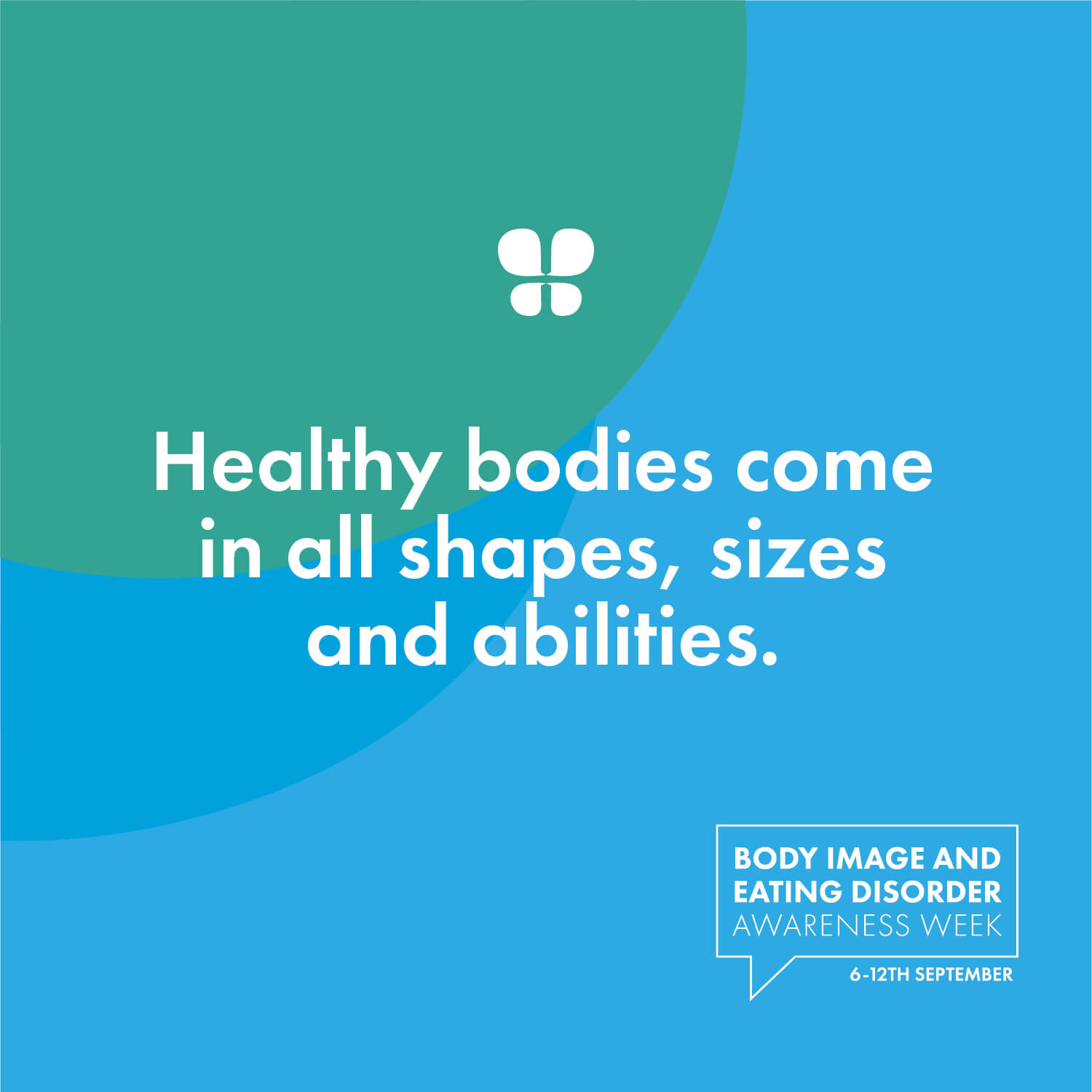
Why do we need to reduce the impact of diet culture on our lives?
Diet culture is a set of beliefs that promote weight loss and equate it with a person’s health, success and self-worth. It perpetuates the understanding that thinness is the ‘correct’ body size to maintain and a person is ‘morally bad’ if they gain weight or live in a larger body. Diet culture conditions a mindset that there is a ‘right’ and ‘wrong’ way to eat. It encourages unhealthy practices around food, exercise and eating to achieve a desirable physical appearance.
Whilst diet culture is entrenched within our everyday lives, we must begin to dismantle its harmful beliefs, messages and practices. Health, success and self-worth are not found through altering physical appearance, and the pursuit of a certain body shape or size can have negative effects on a person mentally, emotionally, socially and physically.
We must prevent society from conflating ‘health’ with dominant beauty standards. Butterfly also acknowledges that there is no ‘correct’ body size to maintain and inhabiting a smaller body does not enhance a person’s morality or status. Diet culture is dangerous for all bodies regardless of their weight.
This BIEDAW, help spread the message that all bodies are good bodies, and that we don’t have to subscribe to diet culture’s limiting beliefs.
What are the impacts of diet culture?
- Diet culture can trigger disordered eating, weight-loss dieting and body dissatisfaction, which are all risk factors for the development of an eating disorder.[1]
- Young people who diet moderately are six times more likely to develop an eating disorder; those who are severe dieters have an 18-fold risk.[2]
- People who follow disordered eating patterns or dieting behaviours may deliberately remove themselves from social activities that involve eating. This can drive loneliness and low self-esteem.
- For those in recovery, diet culture can exacerbate an eating disorder and may make full recovery difficult.
Diet culture can also generate disturbed relationships with food, the mind and body.
People may:
- develop concerns about their body image, shape or size.
- experience feelings of low self-esteem.
- acquire a fear of weight gain and an obsession with weight loss.
- use exercise as a punishment for consuming ‘extra’ calories or ‘bad’ food.
- engage in weight-control behaviours and slip into disordered eating patterns e.g through restrictive dieting, fasting, calorie counting, avoiding specific foods, eliminating food groups, skipping meals, controlling portion sizes, following strict food rules, using detoxes/cleanses, weight loss products, diet pills, diuretics or laxatives.
- experience hunger, lack of energy, poor physical health and low moods from dieting.
- develop depression and/or anxiety (commonly associated with dieting/disordered eating).
- recognise food as a reward and something to be earned.
- associate food with fear and guilt, removing the joy of eating.
- develop a preoccupation with clean eating, leading to orthorexia or orthorexic behaviours.
- encounter shame and feelings of failure if strict rules around food, eating or exercise are broken, but engage in self-praise if these rules are met.
People may:
- believe they are adopting a ‘healthy lifestyle’, despite engaging in unhealthy food and exercise practices.
- perceive restrictive dieting to improve their health, despite it offering no health benefits.
- disguise an eating disorder under a ‘healthy eating’ routine.
- incorrectly use ‘outward appearance’ or ‘weight’ as an indicator of biological health. This impedes understanding that people in larger bodies can be fit and healthy, and those in smaller bodies can be unhealthy. Health is determined by a multitude of factors that transcend body size.
It’s also important to be aware that influencers and celebrities can often amplify diet culture by promoting inaccurate health and dieting advice, or encouraging their audiences to engage in diets or practices that may be not be applicable to every body.
People may:
- internalise beliefs they are morally ‘good’ or ‘bad’ based on their food choices and body size.
- acquire false understandings that embodying the ‘thin-ideal’ makes someone more ‘attractive’, ‘likeable’ and ‘successful’ for exerting ‘willpower’ over their diet.
- use the number on the scale as an indicator of self-worth.
- engage in repeated cycles of dieting due to false promises that weight loss brings ‘happiness’ and ‘success’.
People living in larger bodies may:
- experience stigma, shame, and oppression.
- encounter false stereotypes that frame them as ‘wrong’, ‘lazy’ and ‘lacking self-discipline’ over their food choices.
- have their weight defined as a ‘problem’ that must be ‘solved’ through strict dieting, which generates medical and psychosocial risks. Weight stigma experienced by people in larger bodies increases their likelihood of developing an eating disorder.[3]
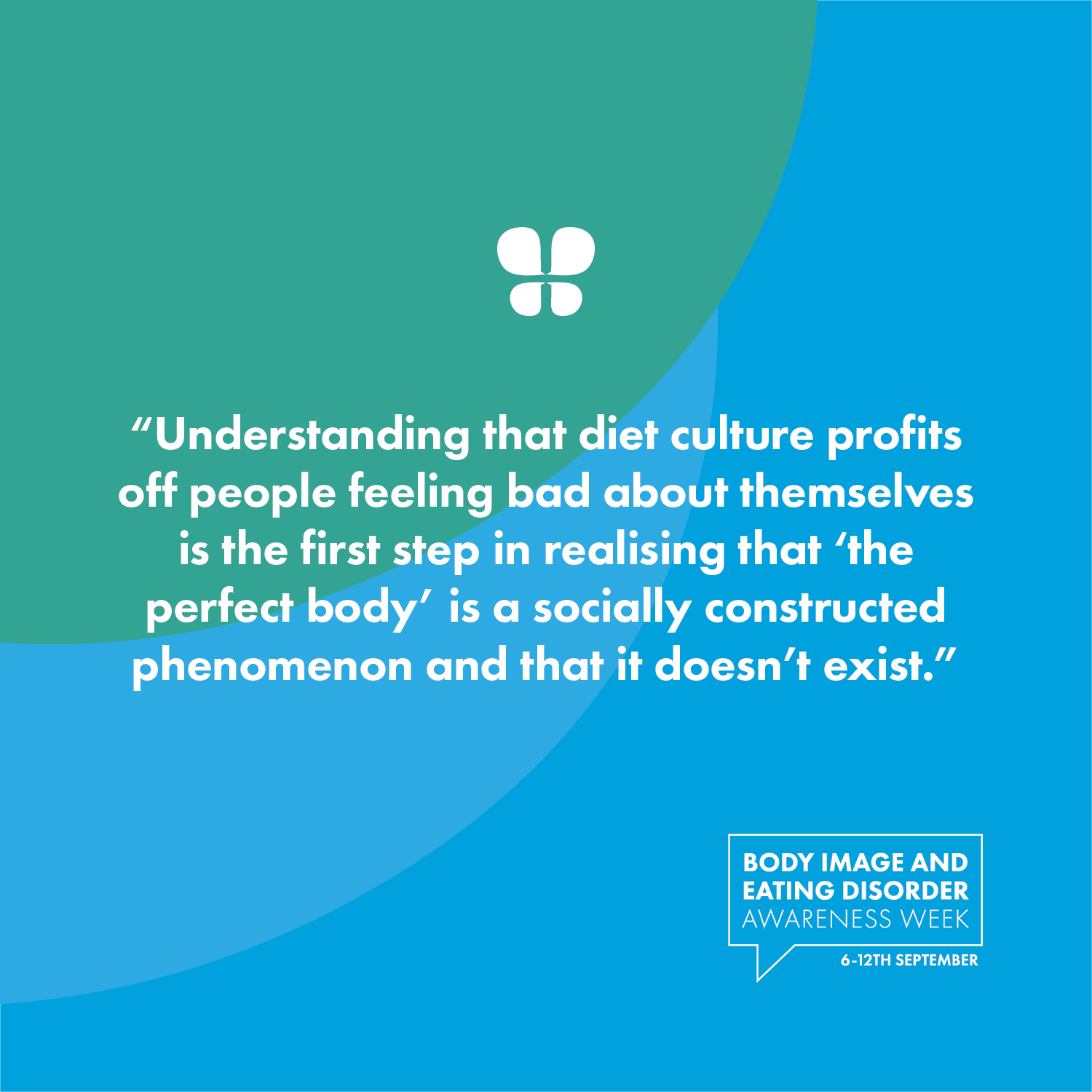
How do I navigate diet culture during a pandemic?
For many people, the pandemic has impacted regular eating and exercise routines. Unfortunately, this has led to significant discourse from the diet industry about weight gain during periods of lockdown, with terms such as the ‘COVID Kilos’ and ‘Quarantine 5’ being coined. This type of messaging is extremely problematic as it is an already stressful period and people do not need to be told that they need to look a certain way as society starts to open up again.
Research has even indicated that increased exposure to weight stigmatising social media messaging has been linked to greater eating disorder symptomology at this time.
Instead, we should use this time to be kind to our bodies, grateful that they’re helping us to get through a once-in-a-lifetime pandemic. And while it’s common during this time to spend more time on social media, make sure it’s a safe space that benefits your mental health. Unfollow people and accounts who are no longer serving you, follow body positive accounts and hashtags, and remember to take a break and turn off the screens everyone once in awhile.
Get Involved in BIEDAW
There are many ways you can get involved with BIEDAW (6th-12th Sept) to help spread the message that all bodies are good bodies, and that we don’t have to subscribe to diet culture’s limiting beliefs.
Spread the message
BIEDAW 2021 Events
BIEDAW is a collaboration between Butterfly, Eating Disorders Victoria, Eating Disorders Queensland, and Eating Disorders Families Australia. Find out what events you can get involved with below.
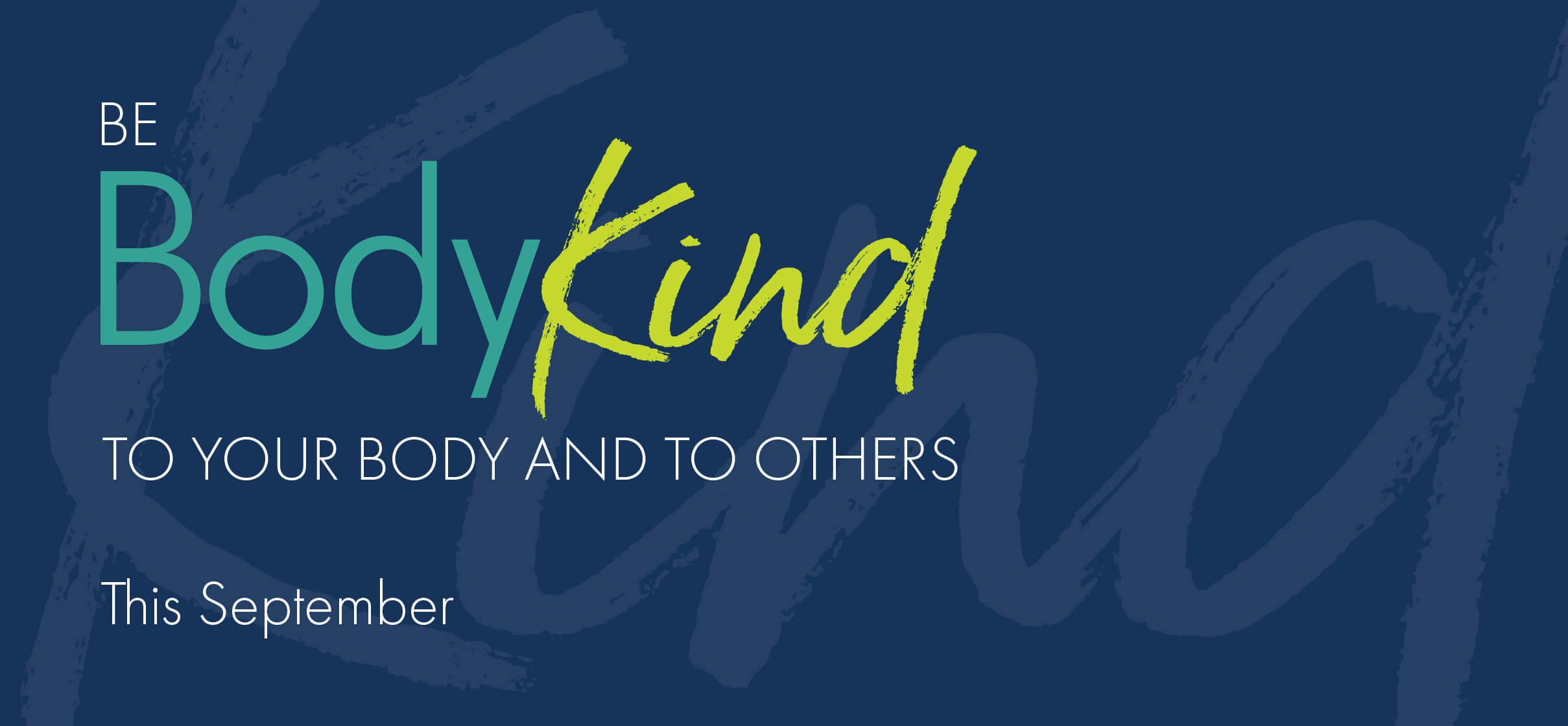
Body Kind
Finding ways to like, accept, love or even feel positive about your body can be challenging in the world we live in today, but we can all try to be a little kinder.
Being Body Kind is how we nourish, nurture and move our bodies. It’s about the language we use out loud, online and in our heads – to ourselves and others.
This September, join Butterfly’s free annual awareness initiative, Body Kind, to encourage everyone in Australia to be kind to their own body and to others; face to face and online. You will receive practical, evidence-informed tips, activities and webinars.
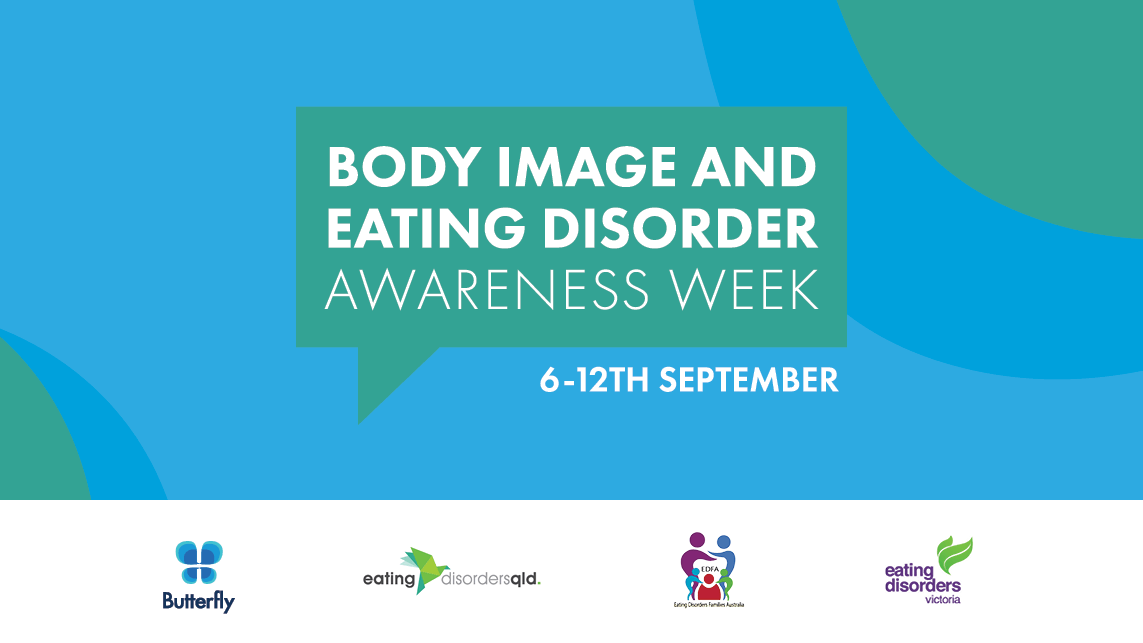
BIEDAW on Socials
Keep your eyes on our social media channels, where across the week will be showcasing Lived Experience and expert insights, quotes and information on how you can reduce the impact of diet culture on your body image and life.
Instagram | Facebook | Twitter | LinkedIn
Donate
Donate to Butterfly, so we can continue supporting those living with eating disorders and body image concerns.
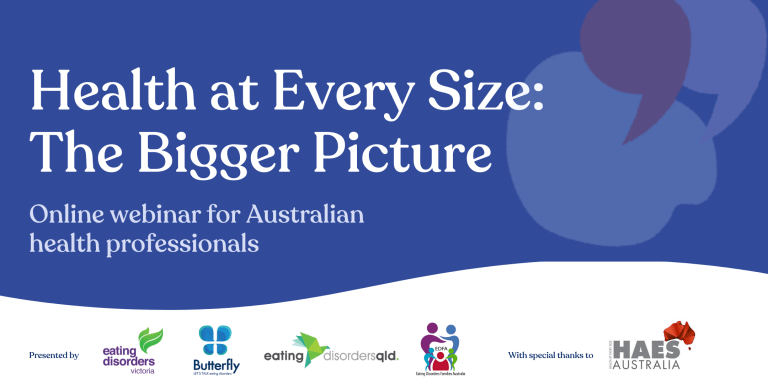
Health at Every Size: The Bigger Picture
Free educational webinar for health professionals.
Join Eating Disorders Victoria and Australia’s leading HAES® clinicians and advocates for a special webinar in support of BIEDAW 2021.
Wednesday, 8th Sept | 7pm-8pm | Zoom
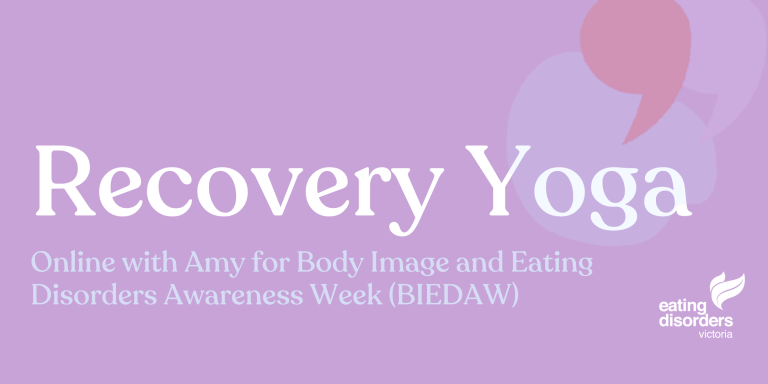
Online Recovery Yoga
Join EDV’s Wellbeing Coordinator and yoga practitioner Amy Woods for a gentle online yoga class. This free class will be themed around this year’s focus of BIEDAW – Respecting All Bodies
Thursday Sept 9th 2021| 10am – 11am | Online via Zoom
More about diet culture and body image
- Health not weight
- Body image explained
- Health At Every Size Australia
- Understanding weight bias and fatphobia and how to overcome it
- Disordered eating and the diet cycle
- People living in larger bodies with eating disorders
- Have a question about eating disorders or body image? Chat to KIT
Eating Disorder Alliance of Australia
- Butterfly Foundation
- Eating Disorders Victoria
- Eating Disorders Queensland
- Eating Disorders Families Australia
References
[1] Eating Disorders Victoria. (n.d.). Key research and statistics. Retrieved from Eating Disorders Victoria website: https://www.eatingdisorders.org.au/eating-disorders-a-z/eating-disorder-statistics-and-key-research/
[2] Butterfly Foundation. (2021). Risks and warning signs. Retrieved from the Butterfly Foundation website: https://butterfly.org.au/eating-disorders/risks-and-warning-signs/
[3] NEDC. (2017). People Living in Larger Bodies & Eating Disorders. Retrieved from the NEDC website: https://nedc.com.au/eating-disorders/eating-disorders-explained/people-living-in-larger-bodies-and-eating-disorders/
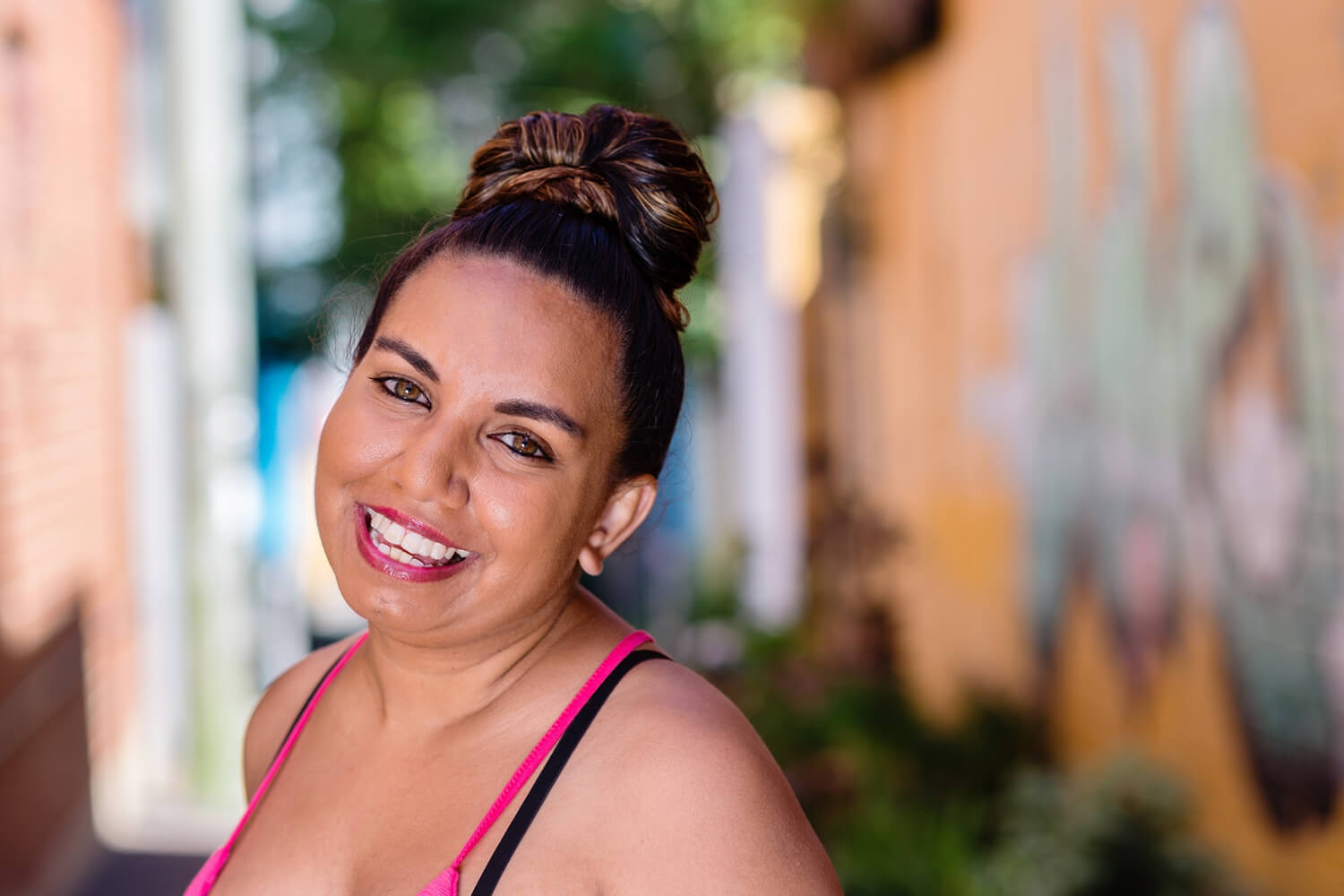
Concerned about yourself or someone you know? Get support now
If you or your loved one is experiencing a body image concern or eating disorder, contact the Butterfly National Helpline
1800 33 4673 | via webchat |email support@butterfly.org.au





















